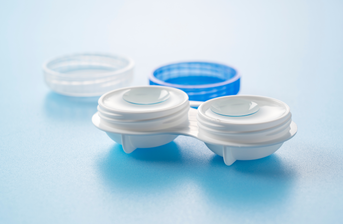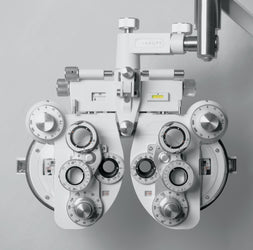Common eye problems that run in families
-
Refractive errors occur when the shape of the eye prevents light from focusing on the retina properly. The
most
common refractive errors are nearsightedness, farsightedness, and astigmatism. Refractive errors are often
hereditary,
which means they can be passed down from parents to children. If you have a family history of refractive errors,
it's
important to get your eyes checked regularly to detect any changes in your vision.
-
Glaucoma is a group
of eye diseases that damage the optic nerve and can lead to vision loss or blindness. Glaucoma can be
hereditary,
and people with a family history of the condition are at a higher risk of developing it. The risk of developing
glaucoma
increases with age, so it's important to have regular eye exams to monitor your eye health.
-
Macular
degeneration is a common cause of vision loss in older adults. The condition occurs when the macula, the part
of
the retina responsible for central vision, deteriorates. While age is the primary risk factor for macular
degeneration,
a family history of the condition can also increase the risk. Regular eye exams can help detect macular degeneration
early and prevent further vision loss.
-
Cataracts occur when the lens of the eye becomes cloudy, causing
blurry vision. Cataracts are common in older adults, but they can also be hereditary. If you have a family history
of
cataracts, it's important to have regular eye exams to detect any changes in your vision and determine if you need
treatment.
-
Amblyopia also known as lazy eye, is a condition in which one eye doesn't develop properly in
early childhood. This can lead to reduced vision in the affected eye and may cause vision problems in both
eyes.
Amblyopia can be hereditary, so if someone in your family has the condition, you may be at a higher risk of
developing
it.
-
Retinal detachment occurs when the retina, the layer of tissue at the back of the eye, pulls away
from its normal position. This can cause vision loss and may require immediate medical attention. While anyone can
develop retinal detachment, it can be more common in people with a family history of the condition. If you have a
family
history of retinal detachment, it's important to get regular eye exams to monitor your eye health.
Taking steps to protect your eye health
If you have a family history of eye problems, there are steps you can take to protect your eye health:-
Getting regular eye exams can help detect eye problems early, when they're easier to treat. We recommend that
adults get a comprehensive eye exam every 1-2 years, depending on their age and risk factors. If you have a family
history of eye problems, your optician near you may recommend more frequent eye exams to monitor your eye
health.
-
Wear protective eyewear: if you play sports or work in an environment with potential eye
hazards, it's important to wear protective eyewear. This can help prevent eye injuries that could lead to vision
problems.
-
Protect your eyes from UV radiation: exposure to UV radiation from the sun can increase your
risk of developing cataracts and other eye problems. Wear sunglasses with UV protection when you're outside, and
consider wearing a hat for additional protection.
-
Maintain a healthy lifestyle: eating a healthy diet,
getting regular exercise, and not smoking can help protect your eye health. A healthy diet rich in fruits and
vegetables, particularly those high in vitamin C and E, may help protect your eyes against certain conditions
such as macular degeneration and cataracts. These habits can also help prevent other health problems that could
affect
your eyes, such as high blood pressure and diabetes.
-
Quit smoking: smoking is a known risk factor for
many eye conditions, including macular degeneration, cataracts, and optic nerve damage. Quitting smoking can
help
reduce your risk of developing these conditions.
-
Take regular breaks from screens: if you spend a lot of
time in front of a computer, smartphone, or other digital screen, take regular breaks to rest your eyes. The
20-20-20
rule could be a good option: every 20 minutes, look away from the screen at something 20 feet away for 20
seconds.
-
Manage other health conditions: if you have other health conditions, such as diabetes or high
blood pressure, it's important to manage them properly. These conditions can increase the risk of developing certain
eye
problems, so it's important to work with your healthcare provider to keep them under control.
If you're interested in scheduling an eye exam, book an online appointment with us today in one of our shops in London and let your local optometrists help you give the perfect diagnostic.
BOOK AN APPOINTMENT








